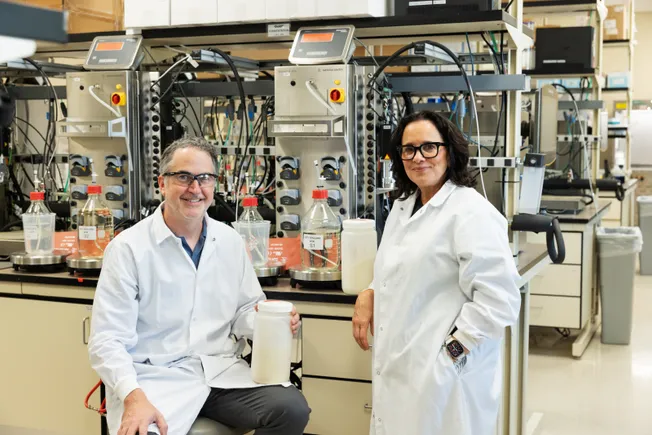Humans are biologically and evolutionarily designed to have a sweet tooth — it’s what kept us from starving to death as hunter-gatherers. But in a world of abundance with sugar-laden treats around every corner, that sweet tooth has led to obesity in 1 in 5 adults in the U.S. and diabetes in 14% of all U.S. adults.
Oobli, an ingredients company that’s developed a sugar alternative from sweet proteins, hopes it can remove the feeling of having to white knuckle through our food choices with preferences that have been ingrained in us through thousands of years.
The company recently received the go-ahead from the FDA on a novel sweet-tasting protein called Monellin, derived from a berry from West Africa. It’s also working with food brands to replace sugar and sugar alternatives with its sweet proteins, linking up with ingredients giant Ingredion to put the solution in front of even more customers.
“I always want to work where technology is changing healthy living,” said Oobli CEO Ali Wing. She started her career at Nike before moving into the health tech startup space.
Oobli’s rise comes as the “food as medicine” movement gains momentum throughout the U.S. In Tennessee, Blue Cross Blue Shield covers fresh produce delivery from startup FarmboxRX as a medical benefit. California hands out “produce prescriptions” through Medicaid for low-income residents who can’t afford them. This year, the food as medicine conversation will gain a powerful and controversial frontman in Health and Human Services Secretary Robert F. Kennedy Jr.
“There’s never been a bigger conversation happening nationally about this idea of food is health,” Wing said.
Oobli is exploring sweet proteins from a number of different sources, some of which could also have benefits in healthcare. Miraculin, the protein from the miracle berry, is a taste modifier that binds to receptors on the tongue making acidic foods taste sweet. The berry, usually freeze-dried or in a tablet, had a popular moment in the 2010s with Flavor Tripping parties. Guests would let the tablet dissolve on their tongue and then eat a spread of lemons, limes and apple cider vinegar that, for half an hour, would taste like lemonade, limeade and apple juice.
But scientists saw something more in the berry than a party trick. Cancer scientists, doctors and patients started using the berry to improve the taste issues many cancer patients experience during chemotherapy. A few small studies in the early 2010s showed that chemo patients using the berry had improved taste perception, had removed the metallic taste often left in the mouth by the chemicals and some were even able to put on weight. This is food as medicine at its core — the molecules in food being used as an intervention and helping patients eat to stay healthy.
“Imagine if we could research why it is that people lose their taste, and what is it about these plants and this particular DNA that reactivates that?” Wing said. These proteins also don’t have any other aftertastes or adverse effects. Because they are “naked,” Wing thinks they could be extremely relevant to creating pharmaceuticals without aftertastes.
Precision fermentation and CRISPR are making these innovations in both food and pharmaceuticals possible. In the 2010s, there was a lot of academic research on these chemicals but few commercial applications because these berries were grown in far away, precious ecological areas and there wasn’t enough of a market to invest in cultivating them. CRISPR and fermentation unlocked the ability to produce kilos of the proteins in test tubes and bio fermenters and start playing with them in both commercial food and pharma applications.
“This is the healthiest balance of the best of nature with the best of technology,” Wing said.







